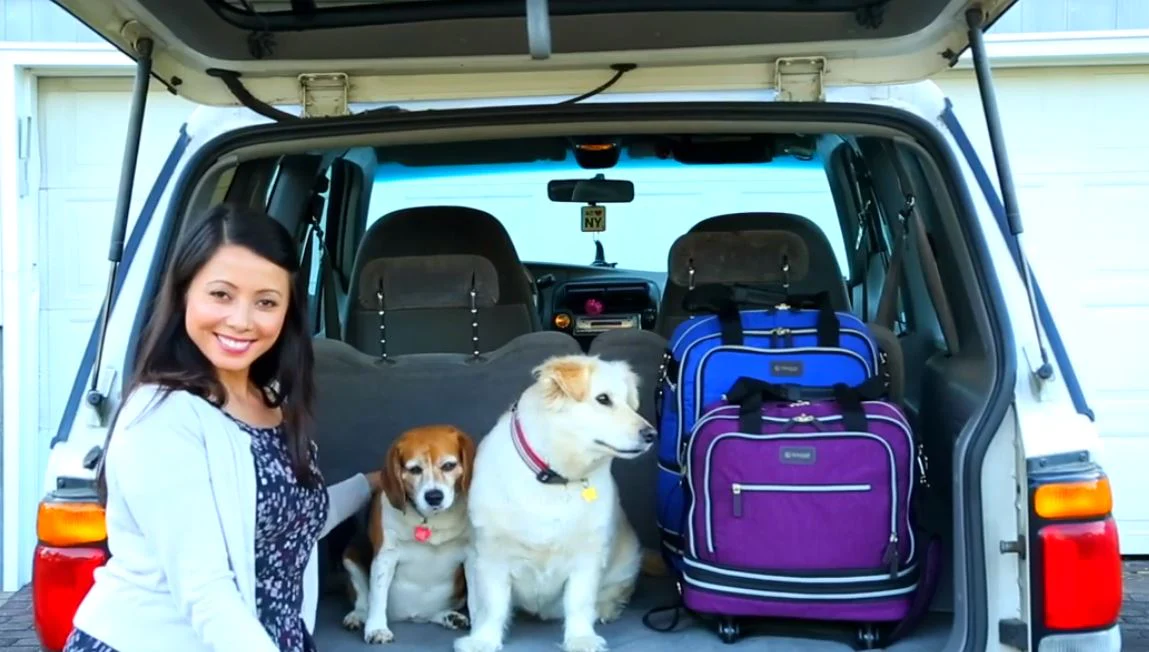Traveling with pets is an enriching and enjoyable experience for you and your pet alike, but different forms of transport may affect them differently. To make sure your pet is prepared, visit their veterinarian for an initial exam as well as vaccinations or paperwork requirements before leaving home.
Know the rules regarding pets at your destination – including hotel pet policies – as well as whether your pup will be welcome at restaurants.
Preparation is Key
Long car, train, or plane journeys can be extremely distressful for pets and their owners alike. Even experienced travelers can still experience stress from having to spend long stretches away from their companion.
Pets who travel by air can become anxious due to all of the noise and activity in an airport or train station. It may help them become more relaxed if you visit these places together to help ease them through. It may also help your pet adjust more easily if you visit these spaces prior to travel.
Dr. Burkert emphasizes the importance of getting your pet used to their crate before traveling, suggesting purchasing an airline-specific crate designed for air travel that allows your dog or cat to rest comfortably inside it and can be easily checked in. Also bring along items that smell familiar such as dog beds and clothing from home that smell familiar as this will ease transition.
Vaccinations
Vaccines provide pets with protection against fatal diseases and help limit infection spread among other pets. Veterinarians cite vaccination as one of the greatest advances in medical science, saving more lives than any other form of therapy.
Even when traveling short distances with your pet, he could still come into contact with potentially contagious animals at the dog park or grooming salon. Therefore, it is vital that all essential vaccines remain current both while traveling and at home.
Most pets respond well to vaccination, though slight pain or subtle swelling at the site of injection is common. Any persistent signs of discomfort should be discussed with your veterinarian. When traveling by airplane with your pet, be sure to contact the airline ahead of time regarding vaccination requirements; some airlines require health certificates, acclimation certificates or proof of recent vaccination; additionally they may impose additional regulations regarding cabin or cargo space travel for animals.
Crate Training
Crate training is essential for safety, housebreaking and travel. While many dogs initially display resistance towards entering their crate, with time and patience you can help them come to accept and even enjoy it! Start with short supervised periods in their crate each day as they become used to it, gradually increasing it over time until they come to accept and enjoy being there – leaving the door open at all times so they do not associate the crate with isolation but instead view it as their safe place away from home.
For air travel, your pet will require a solid plastic airline crate (not wire training or sleeping crates) so they can fit inside comfortably during flight. Measure their height and length so it fits just right, then gradually open the door when they have settled inside slowly until they sit quietly before opening it further to teach them that waiting until being released is okay is best instead of trying to escape immediately and running off into unfamiliar or potentially hazardous territory.
Traveling
Dogs and cats love traveling, but travel can be stressful for them. Most veterinarians advise asking yourself whether your pet really wants to make the journey, especially if they are older or have medical conditions; if that is the case for yours it may be beneficial to find someone to watch their pet while you are gone.
If you decide to bring your pet along for the journey, make sure their crate is properly ventilated and that they have plenty of toys and treats to keep them busy during travel. Familiar objects may help calm them during a trip – throw some blankets or beds from home into your suitcase as familiarity can help them relax during transit. Dogs also require regular potty breaks; look out for dog-friendly rest stops or plan flights accordingly.
Remind yourself that international travel comes with its own set of regulations governing pets, such as vaccinations and health certificates. For more information about what needs to happen at each stopover country, contact the Foreign Office in your destination country.




